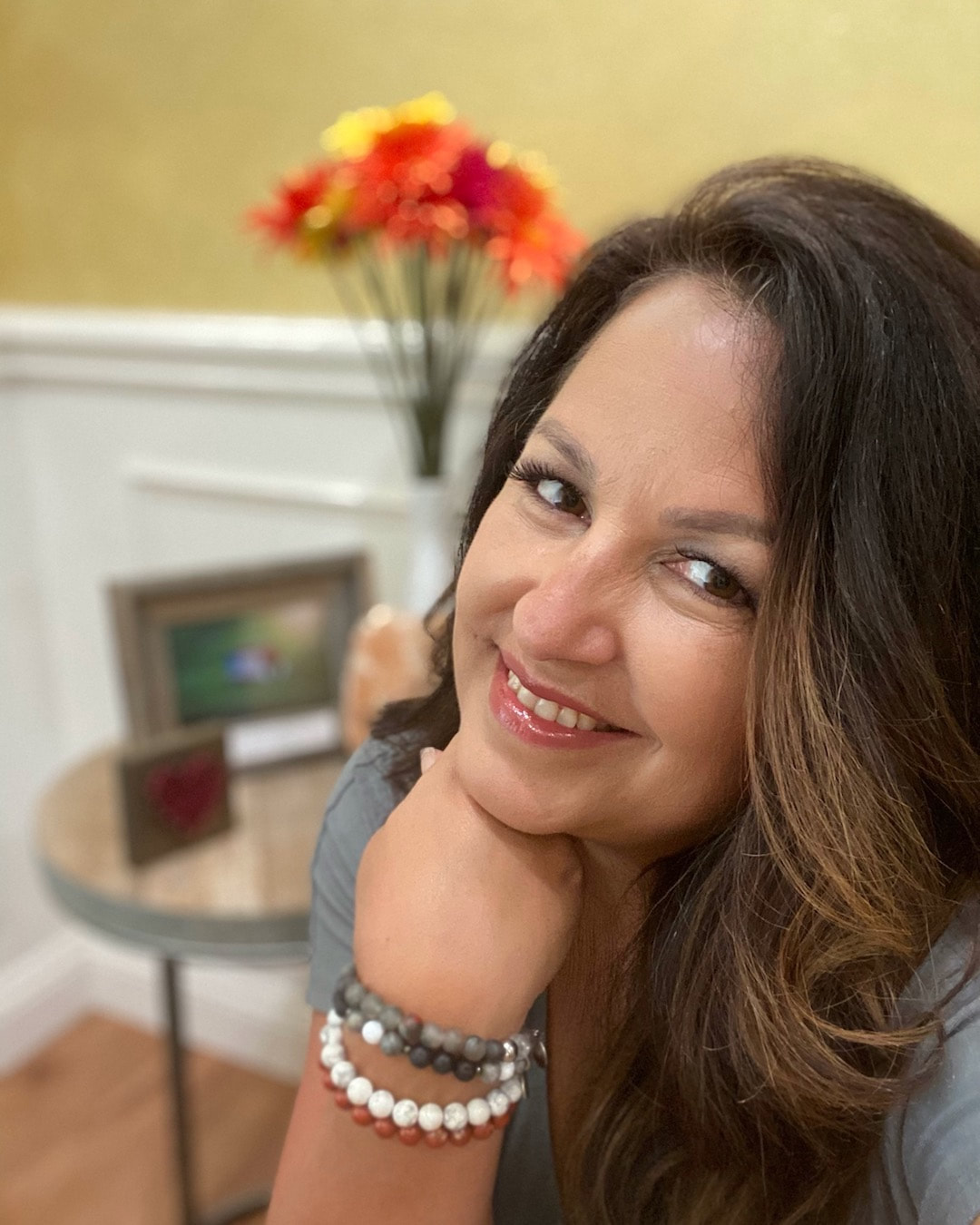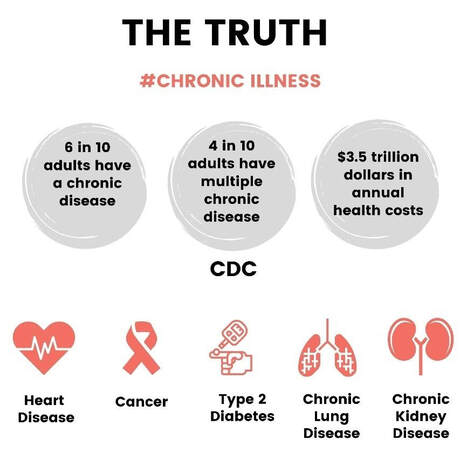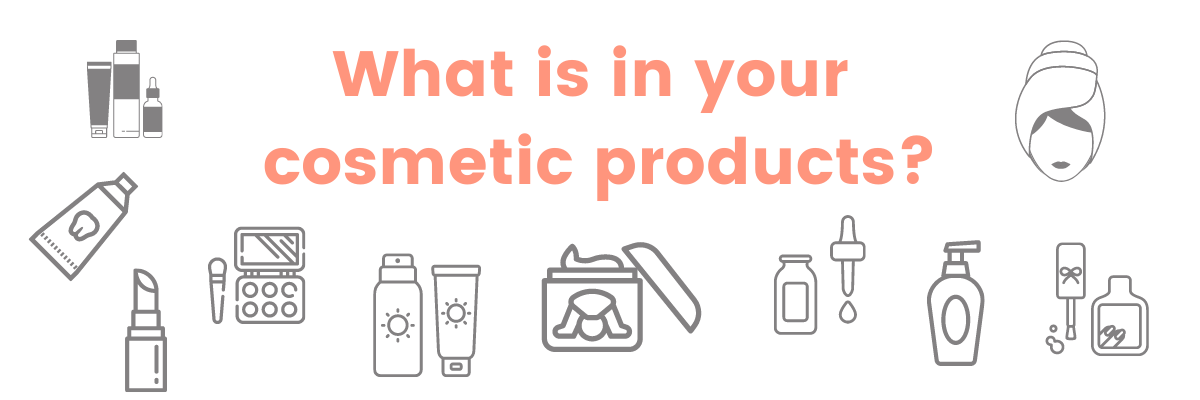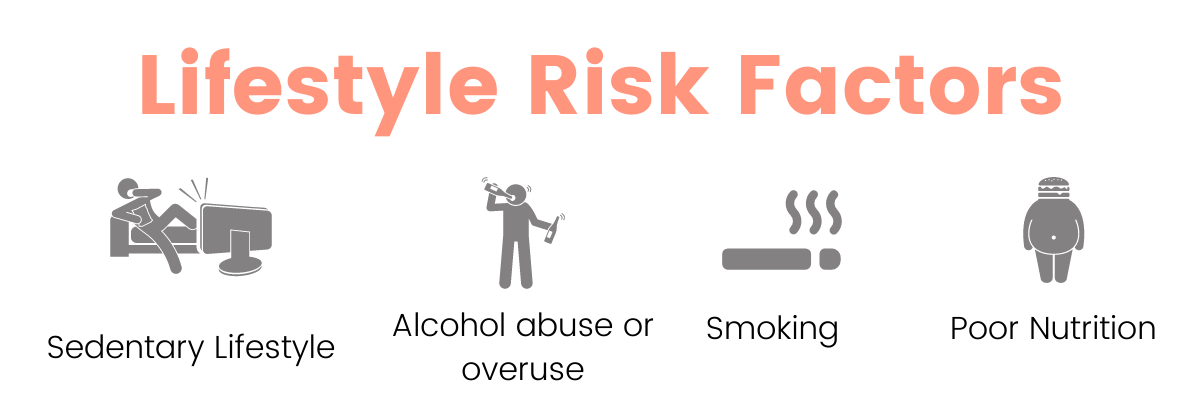|
Have you heard the phrase “Chronic Illness” but are not sure what it means? As a National Board Certified Health & Wellness Coach (NBC-HWC) specializing in chronic illness with a functional medicine approach, I hear this all the time. I am here to tell you: you are not alone! Talking about health does not have to be taboo or filled with guilt. Conversations about health deserve to be encouraged, to understand what is not known, and to get clear answers to your questions. The intent of this article is to provide you with an introduction to what chronic illness is, and the common risk factors that lead to illness, and to explore what different approaches you can take to prevent, reverse, or manage disease. What is Chronic illness? If you search online for “chronic illness definition” you will find two common references to define what chronic illness is. First, much of the established literature, like this article, for example, states: “a chronic condition is a human health condition or disease that is persistent or otherwise long-lasting in its effects or a disease that comes with time. The term chronic is often applied when the course of the disease lasts for more than three months.” Second, the Centers of Disease Control (CDC) references one year vs three months, which can be confusing. What is important to understand is doctors make recommendations based on what they see clinically in their office, so a follow-up visit at three months is an effective way to monitor treatment with measurable outcomes. During your follow-up appointment, the medication and/or lifestyle adjustments being made during this three- month time period will be compared for their effectiveness. If you had a new diagnosis following a lab work-up, you would likely be asked to return to the office in three months time to repeat and compare your results, and adjustments can be made as needed. Some examples of common outcomes measured over a three month period:
According to the CDC: “Chronic diseases are defined broadly as conditions that last 1 year or more and require ongoing medical attention or limit activities of daily living or both. Chronic diseases such as heart disease, cancer, and diabetes are the leading causes of death and disability in the United States. They are also leading drivers of the nation’s $3.5 trillion in annual healthcare costs.” (2) Wow! $6.5 trillion dollars is spent in annual health care costs on illnesses that could be prevented or reversed! With trillions of dollars being spent on healthcare, it is no wonder why the health and wellness industry is a billion-dollar industry. IF the health and wellness industry is a billion-dollar industry, does that mean it is effective at preventing, reversing, or managing disease? Spoiler alert… Yes and No! With an anything-goes mentality to bring supplements, products, and services to market within the health and wellness space, there is also opportunity for confusion with misinformation and fads due to missing or relaxed regulations related to what ingredients are monitored. The FDA states “Because there are over 300,000 marketed OTC drug products, FDA reviews the active ingredients and the labeling of over 80 therapeutic classes of drugs, for example analgesics or antacids, instead of individual drug products.” (3) This approach to regulation allows for safety and efficacy of an individual product to be overlooked and does not provide any clarity as to whether the product is safe for a specific medical condition. How is this effective for preventative medicine? A great visual to compare the U.S. to the rest of the world is to investigate cosmetics ingredients. The skin is our largest organ. What we put on our skin can be absorbed into our bloodstream. If we put toxic ingredients in our self-care products, this can lead to toxic build-up and illness. This article demonstrates the worldwide effort to prevent toxins in cosmetics. “More than 40 nations ... have enacted regulations specifically targeting the safety and ingredients of cosmetics and personal care products. Some of these nations have restricted or completely banned more than 1,400 chemicals from cosmetic products. By contrast, the U.S. [FDA] has banned or restricted only nine chemicals for safety reasons.” This article, “Chemical Exposures: The Ugly Side of Beauty Products,” is one example of how the U.S. recognizes the problem yet puts the responsibility in the consumers' hands to double-check ingredients, while the regulations catch up to policy reform. Are you thinking “great, there ARE solutions out there for me, but how does this affect the fact I already may have an illness, I can’t control that, right?” Common Risk factors for developing a chronic illnessDid you know the most common risk factors that contribute to chronic illness are all due to lifestyle choices? Lifestyle choices are often encouraged by culture, socioeconomic status, and social media. It is time to change the narrative by raising awareness about what lifestyle choices we make can have an impact on our health. Facts:
What you can do differently to get different results Before we explore WHAT we can do differently, it is helpful to understand why what we are currently doing is not working. Consider the landscape of U.S. Health & Wellness:
This study “Mobile Apps for Health Behavior Change in Physical Activity, Diet, Drug and Alcohol Use, and Mental Health: Systematic Review” concludes: “There was no strong evidence in support of the effectiveness of mobile apps in improving health behaviors or outcomes because few studies found significant differences between the app and control groups. Further research is needed to identify the BCTs that are most effective at promoting behavior change. Improved reporting is necessary to accurately evaluate the mobile health app effectiveness and risk of bias.” (5) This is where people can get frustrated with feeling overwhelmed and confused because they just want to feel better! What alternative options are available for restoring health? Awareness and addressing unmet needs – the demand for change needs to grow. Take the time to learn how to advocate for your appropriate testing and care within the conventional healthcare setting. Learn your ingredients policy of products you use
The Functional Medicine Approach Functional medicine identifies and treats the root cause of illness. Each person is viewed as a unique individual. There are functional medicine doctors, clinics, and health coaches that can work individually or together to meet your needs. The leader in research in the functional medicine industry is the Cleveland Clinic, Center of Functional Medicine. Think of it this way: Two people can have type 2 diabetes but the WHY it started is based on lifestyle factors that are different, so why would they be treated the same? Same with stress – we all can relate to this with COVID-19! Our individual stressors are unique and can lead to different illnesses. This concept can be applied to nearly any condition! FACT: Poor gut health is the #1 symptom seen in the primary care setting and stress is often the root cause. Investigation into WHY stress is happening and identifying effective behavior change to address the stress is a key to restorative health. National Board Certified Health Coaches (NBC-HWC) – are trained non-licensed healthcare professionals to support clients with behavior changes needed to make lasting change. An NBC-HWC is certified by NBHWC, an organization whose mission is to “lead the advancement of health & wellness coaching by establishing professional standards and collaborative partnerships”. (6) Team approach – surround yourself with healing professionals that work together to excel in their chosen profession and know when to refer you to a complimentary professional. Knowledge truly is power. Now you understand better what chronic illness is. This was a brief overview to get you thinking differently about any frustrations you may have in your own health journey and some answers to why your current plan may not be giving you the optimal results you want and introducing you to a new option you have at your disposal. Curious about finding a functional medicine provider? You can find a directory of functional medicine doctors at the Institute For Functional Medicine. If you are looking for a National Board Certified Health & Wellness Coach, you can find one here. If you are interested in learning more about my coaching services, I invite you to connect with me! In Health, Jen References:
2 Comments
Jeralyn
8/24/2020 07:35:21 am
Great article, Jen! I need to educate myself more on the skincare stuff... I am so careful about what foods I eat, but not so much with my topical products. Thanks for the resources on that!
Reply
Jen Lendaris
8/24/2020 02:54:15 pm
Hi Jeralyn! Being mindful of what you eat is so important, good for you. Adding on the mindfulness of what goes on my body has been instrumental in my personal healing journey. Glad I could bring more awareness to the topic for you!
Reply
Leave a Reply. |
take control of your health.Connect with a board certified coach to help you succeed with health changes. COACHES:
|









